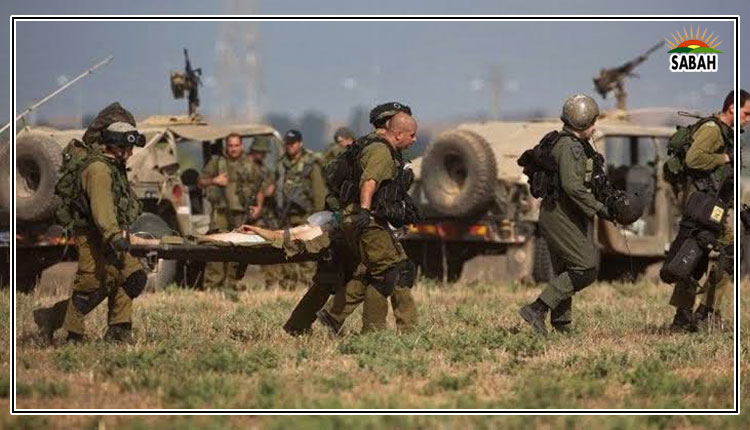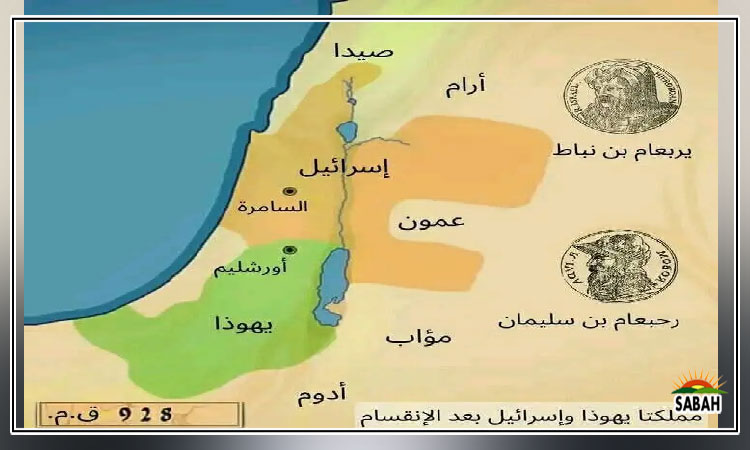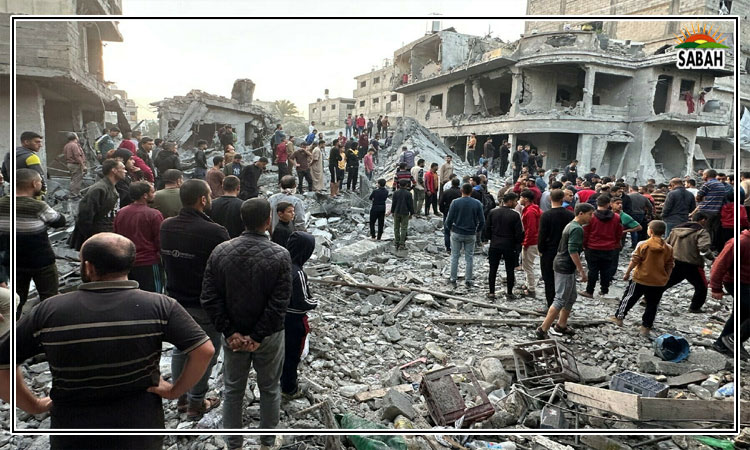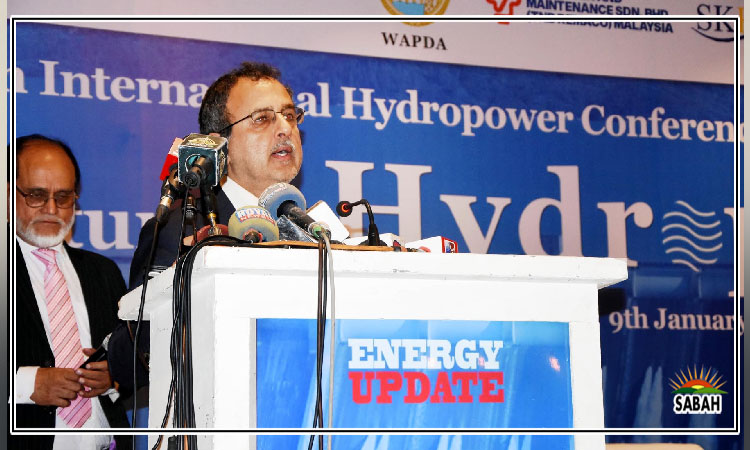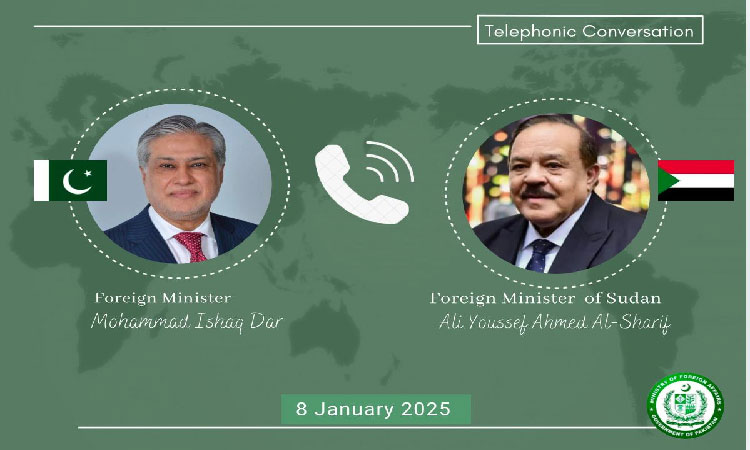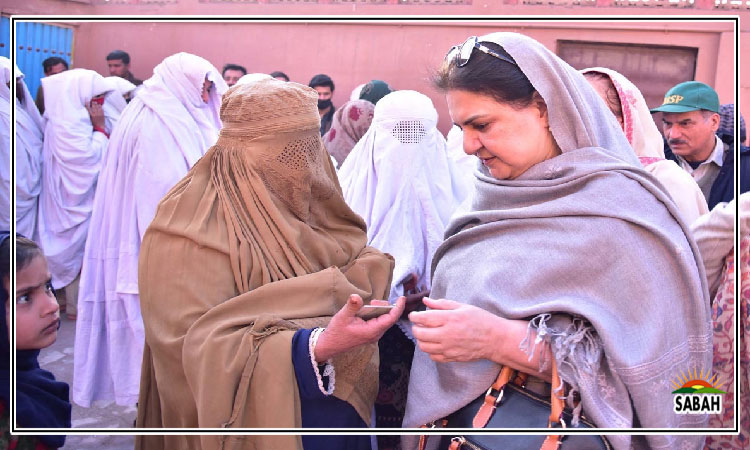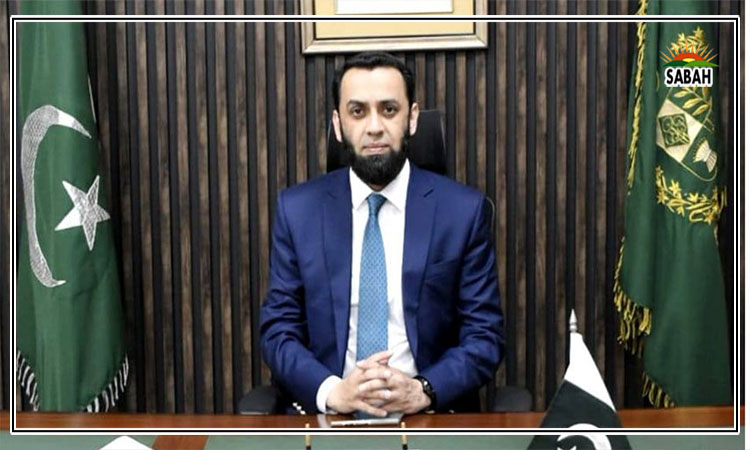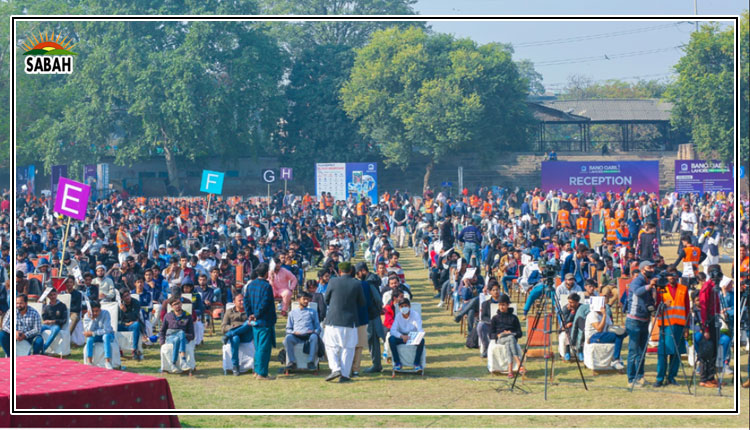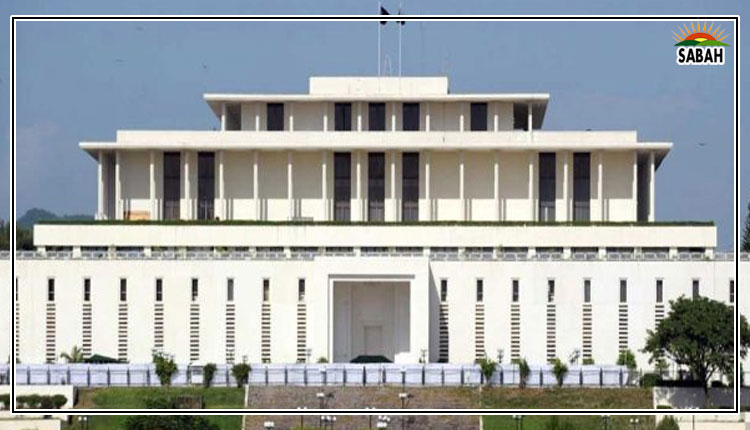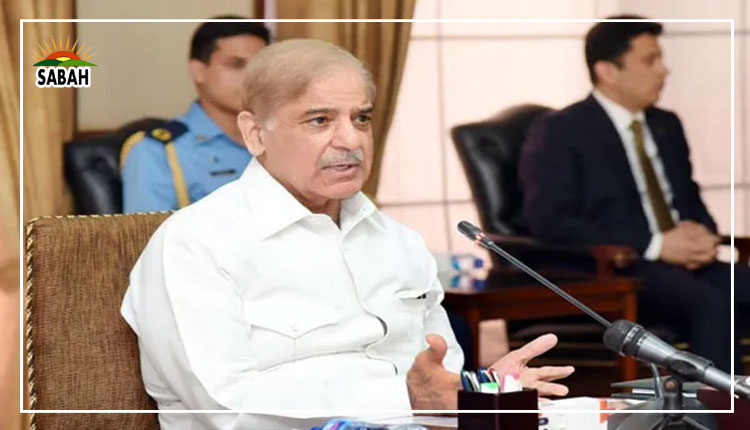PM Shehbaz announces to impose 10% ‘poverty alleviation tax’ on large scale industries
ISLAMABAD, June 24 (SABAH): Prime Minister Mian Muhammad Shehbaz Sharif announced on Friday that the coalition government plans to impose a 10% super tax on large-scale industries, and that “tough decisions” have been taken to protect the economy on budget 2022-23.
Addressing the nation, after a meeting with his economic team, PM Shehbaz Sharif said that the coalition government has taken some “tough decisions” regarding the federal budget for the next fiscal year 2022-23. “I want to brief the people about those decisions and the actual [economic] situation of the country,” he said, highlighting the two major reasons behind these decisions.
“Our first motive is to provide relief to the masses and to reduce the burden of inflation on the people and facilitate them,” he elaborated.
“Our second motive is to protect the country from going bankrupt,” he said, adding that it has been devastated due to the “incompetency and corruption” of the previous Imran Khan-led government. The decisions taken now will save the country from bankruptcy, he vowed.
Meanwhile, PM Shehbaz further added that other motives included stabilisation of the economy and prosperity of the county. “These aren’t just words, this is the voice of my heart and InshaAllah we will be able to achieve all these targets,” he maintained.
Regarding the International Monetary Fund (IMF) programme, he said: “If the IMF doesn’t put forward any other conditions, I am hopeful that we will be able to reach a staff-level agreement with them soon.”
He further added that the coalition government has taken some “daring” decisions after mutual consultations to provide relief to the people; however, the premier admitted the nation will witness difficulties in the short-run.
“We will steer out of the economic crisis because of these decisions and step onto the path envisioned by Quaid-e-Azam,” he said, adding that after coming into power, the coalition government had two options; to call elections afresh or to protect the “devastating economy” of the country by taking some tough decisions.
“The first way out was easy; however, our [coalition government] conscience did not allow us to do something which would impact the country as the time was to protect the state and not politics,” he stated.
The prime minister urged the affluent sections of society to come forward and share the burden. He said that this is the first budget in the history of Pakistan in which the government has provided an “economic vision”.
Announcing the imposition of a 10% super tax on cement, steel, sugar, oil and gas, fertiliser, banking, textile, chemical, beverage, and automobile industries, he said it has been done to save the common man from taxes.
“A 1% tax has been imposed on people earning over Rs150 million, 2% on those earning over Rs200 million, 3% on those earning over Rs250 million and 4% on those earning over Rs300 million,” he announced.
The Prime Minister expressed the hope that soon Pakistan will come out of the economic crisis and announced to provide relief to the poor segment of society.
Shehbaz Sharif regretted that two thousand billion rupees tax is evaded annually. He said the coalition government has taken difficult decision and it has preferred Pakistan over its own politics.
The Prime Minister hoped that affluent segment of society will show generosity and cooperate with the government.
The premier took the nation into confidence over what he described as “tough” budget decisions. He said that the coalition government made “courageous” decisions to protect the country from “serious dangers”.
He recalled that the government had two options when it first came to power: call fresh elections or take tough decisions and tackle the sinking economy. “It would have been very easy to leave the public in crisis and become silent spectators like others.”
And despite the challenges, the prime minister pointed out, the government chose the latter.
He said history had witnessed that in difficult times, it was the poor who always made sacrifices. “Today, it is time for the affluent citizens to do their part. It is their turn to show selflessness. And I am confident that they will contribute fully to play their part.”
He said the institutions whose job was to collect taxes should take from the rich and give to the poor. He, however, lamented that the “big ones” evade paying taxes.
The prime minister said it was the collective responsibility of the state — including the PM — that tax money went to the national treasury. “We have been unsuccessful in this so far,” he added.
PM Shehbaz said: “It is never too late. Right after the budget [is passed], teams have been formed to go all out to collect taxes. Assistance will be sought from all constitutional institutions and we will employ modern technology and digital tools [for the purpose].
PM Shehbaz said the steps taken in the budget were designed to ease the burden on the poor. “As for the classes who are blessed, today, this nation is demanding of them to also work hard, to come forward and to make Pakistan prosperous and progressive,” he added.
The premier called on the wealthy to “distribute” some of their wealth and “relive the memory of Ansar-i-Madina”. “This is your responsibility, and the nation demands it of you,” he said.
He said it was his belief that the steps that were taken now would not only add to Pakistan’s treasury but would also bring ease to the poor and make Pakistan economically self-reliant.
Another appeal for ‘grand national dialogue’
The prime minister said by taking from those “who Allah has blessed”, education, health, roads, IT development could be buttressed. “To further nurture the nation, resources are needed,” PM Shehbaz added.
He added that if the amount was not collected for the country’s needs, “we will have to take loans”.
Referring to his predecessor Imran Khan’s “shackles of slavery” remarks, PM Shehbaz said economic stability and economic freedom were the only true ways the “shackles of slavery would be broken”.
“This is what we call self-reliance, without which no nation can have independence,” he added. He lamented that the country was a nuclear power but economically “we are still infirm and weak”.
PM Shehbaz made another appeal for a “grand national dialogue” and his charter of economy. He said if the country did not bicker among themselves and “fight to end poverty, to end a life of debt, to stabilise Pakistan’s economy, the country wouldn’t be in the position it is in.
“But it is never too late. Today we have to demolish the walls of poverty, unemployment and hatred. We have to give birth to flowers of love and end thorns. This is only possible through a grand national dialogue and charter of economy.
“When the nation is united and will stick to its mission, whatever govt comes and goes, Pakistan’s conditions will change soon.”
Meanwhile Prime Minister Muhammad Shehbaz Sharif has assured continued support and cooperation to the people of Afghanistan in this hour need.
In a telephonic interaction with the acting Prime Minister of the Interim Afghan Government Mullah Muhammad Hassan Akhund, he conveyed deep sympathies and condolences, on behalf of the Government and people of Pakistan, over the loss of precious lives and material damage in devastating earthquake in Afghanistan.
Shehbaz Sharif affirmed that people of Pakistan stands shoulder-to-shoulder with their Afghan brethren in this difficult hour.
Prime Minister conveyed that Ghulam Khan and Angoor Adda border crossing points have been opened for the transportation of the seriously injured Afghans for their treatment in the Pakistan.
He reiterated Pakistan’s resolve to provide continued assistance to the Afghan people facing a dire humanitarian situation.
The Prime Minister, while highlighting the measures Pakistan has taken to facilitate trade and movement of people, said Islamabad is committed to strengthen bilateral ties to promote the cause of peace, progress and prosperity.


